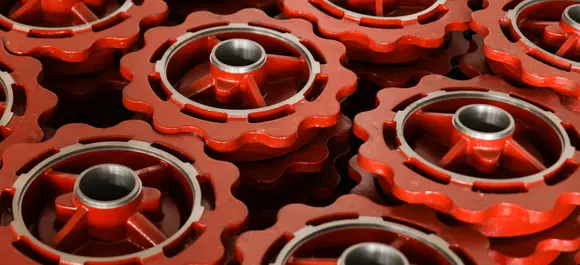Mobile:+86-311-808-126-83
Email:info@ydcastings.com
aluminum sand casting manufacturer
Aluminum Sand Casting A Comprehensive Overview of the Manufacturing Process
Aluminum sand casting is a versatile and economically efficient manufacturing process widely used in various industries. As a method of producing complex and intricate parts, it plays a pivotal role in sectors such as automotive, aerospace, and machinery, where high-performance components are crucial. This article aims to provide an in-depth look at the aluminum sand casting process, its advantages, challenges, and the significance of choosing a reputable manufacturer.
What is Aluminum Sand Casting?
Aluminum sand casting involves creating metal parts by pouring molten aluminum into sand molds. The process begins with the preparation of a sand mold, which consists primarily of silica sand mixed with a binder. The sand mold is formed around a pattern of the component to be produced. Once the mold is created, molten aluminum is poured in, allowed to cool, and solidify into the final part. After cooling, the sand mold is broken away to reveal the cast component.
Advantages of Aluminum Sand Casting
1. Cost-Effectiveness One of the standout benefits of aluminum sand casting is its cost-effectiveness, especially for short to medium production runs. The materials used are relatively inexpensive, and the production of molds can be done rapidly, reducing overall manufacturing costs.
2. Complex Geometries Aluminum sand casting allows for the creation of intricate designs and complex shapes that would be difficult or costly to achieve with other manufacturing methods. This capability is particularly beneficial for industries requiring custom parts with unique specifications.
3. Material Properties Aluminum possesses excellent corrosion resistance, strength-to-weight ratio, and thermal conductivity. These attributes make it an ideal choice for many applications, ranging from engine components to structural parts.
4. Versatility The sand casting process can accommodate a wide range of aluminum alloys, optimizing the mechanical properties of the final product for specific applications. This versatility makes it suitable for various industrial needs.
5. Recyclability Aluminum is highly recyclable, making sand casting an environmentally friendly option. Manufacturers can reuse scrap aluminum, which not only reduces waste but also lowers material costs.
Challenges in Aluminum Sand Casting
aluminum sand casting manufacturer

While aluminum sand casting offers numerous advantages, it is not without its challenges. The quality of the final product depends significantly on several factors, including mold preparation, pouring techniques, and cooling rates. Defects such as porosity, shrinkage, and surface imperfections can occur if these factors are not adequately controlled. Therefore, it is crucial to work with a skilled manufacturer who employs stringent quality control measures and best practices.
Choosing a Reliable Aluminum Sand Casting Manufacturer
Selecting the right aluminum sand casting manufacturer is vital to ensure high-quality components that meet specifications. Here are some key factors to consider
1. Experience and Expertise Look for manufacturers with a proven track record in aluminum sand casting. Their experience will likely translate into better quality control and more efficient production processes.
2. Technological Capabilities Evaluate the manufacturer’s technological capabilities. Advanced equipment and production techniques can significantly improve the quality of the cast parts and expedite the manufacturing process.
3. Quality Assurance A reputable manufacturer should have robust quality assurance systems in place. This includes inspecting molds, monitoring the pouring process, and conducting rigorous testing on finished products to ensure they meet industry standards.
4. Custom Solutions Choose a manufacturer that can offer tailor-made solutions and is willing to collaborate closely with clients to develop unique designs and meet specific requirements.
5. Customer Support Good customer service is essential for a successful partnership. A manufacturer that provides clear communication and support throughout the project can help navigate challenges that may arise.
Conclusion
Aluminum sand casting is a beneficial process widely employed for producing a range of components across various industries. Its cost-effectiveness, adaptability to complex shapes, and advantageous material properties make it a popular choice. However, working with a skilled and reliable manufacturer is critical to overcoming the challenges associated with the process and ensuring that high-quality components are produced. By carefully selecting a manufacturer that aligns with your specific needs, you can effectively harness the benefits of aluminum sand casting to achieve your production goals.
-
Why Should You Invest in Superior Pump Castings for Your Equipment?NewsJun.09,2025
-
Unlock Performance Potential with Stainless Impellers and Aluminum End CapsNewsJun.09,2025
-
Revolutionize Your Machinery with Superior Cast Iron and Aluminum ComponentsNewsJun.09,2025
-
Revolutionize Fluid Dynamics with Premium Pump ComponentsNewsJun.09,2025
-
Optimizing Industrial Systems with Essential Valve ComponentsNewsJun.09,2025
-
Elevate Grid Efficiency with High-Precision Power CastingsNewsJun.09,2025











